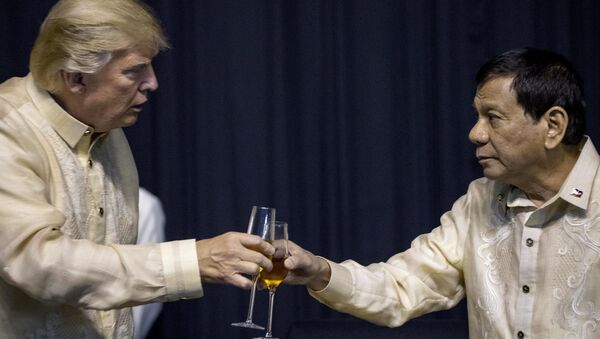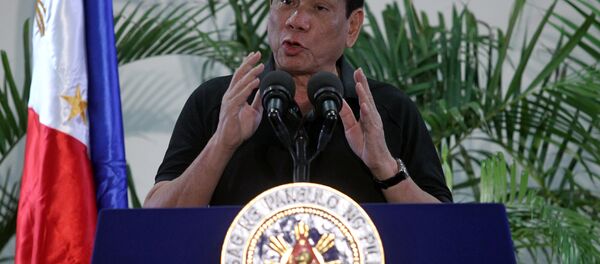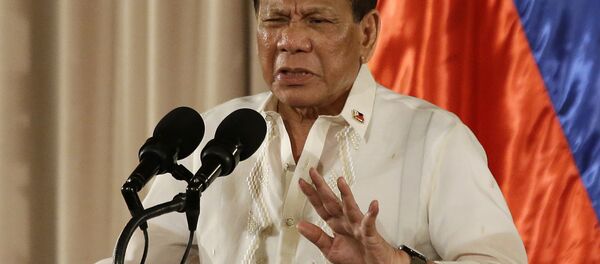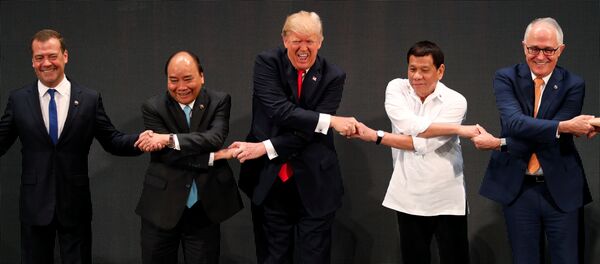The WTA was published on February 13 and spent most of its time running down the "threat" posed by the US' top rivals: Russia, China, Iran and North Korea. The Philippines is only mentioned twice in the 28-page report: once when it's named alongside Turkey and Venezuela (two countries that the US has a rocky-at-best relationship with) as nations "whose governments used social media to spread government views, to drive agendas and to counter criticism of the government online."
The other mention discusses the trend of "autocratic tendencies" deepening in Southeast Asia. "In the Philippines, President Duterte will continue to wage his signature campaign against drugs, corruption and crime," the report reads. "Duterte has suggested he could suspend the Constitution, declare a 'revolutionary government' and impose nationwide martial law. His declaration of martial law in Mindanao, responding to the Daesh-inspired siege of Marawi City, has been extended through the end of 2018," the report notes.
In response to the report, Duterte spokesman Harry Roque told DZMM outlet that Manila viewed the report "with some concern, knowing that at least in one case the International Court of Justice (ICJ) has found the US guilty of interference in the affairs of a domestic state."
This refers to the 1986 decision by the ICJ that the US violated Nicaragua's sovereignty by supporting right-wing Contra rebels who opposed the socialist government of Nicaragua during the nation's decade-long civil war.
"This is something we are taking very seriously," Roque continued. "It is coming from the intelligence community. It is not even coming from the State Department. It is something that the President will take seriously as well."
"For one, President Rodrigo Roa Duterte is no autocrat or has autocratic tendencies. He adheres to the rule of law and remains loyal to the constitution," Roque said in a statement. He added that Duterte has not actually declared a revolutionary government or nationwide martial law.
Duterte did make comments to that effect, however. "Once your destabilization is already creating chaos, I will not hesitate to declare a revolutionary government until the end of my term," he said in an address to drug kingpins and oligarchs that he blames many of the archipelago's woes on.
A "revolutionary government" refers to the 1987 decision of then-president Corazon Aquino to give herself dictatorial powers while overseeing the transition of the Philippines from a martial dictatorship to a presidential republic. Aquino relinquished her extra powers in 1988 when she no longer saw them as necessary.
Relations between Washington and Manila tanked shortly after Duterte's ascension in mid-2016. Duterte openly announced his intention to pivot the Philippines towards China and Russia after decades of strong ties with the US. Then-US President Barack Obama once infamously canceled a planned meeting with Duterte after the firebrand president called him a "son of a whore."
Relations improved after the election of US President Donald Trump, who is more closely aligned to Duterte's law-and-order approach to domestic policy, but Duterte has continued to court foreign powers in trade and political agreements.
The WTA is unsurprisingly focused on nations that the US has a cool or hostile relationship with. US allies with spotty human rights records, like Saudi Arabia and Thailand, receive few mentions in the report. Some, like Egypt, aren't mentioned at all.





